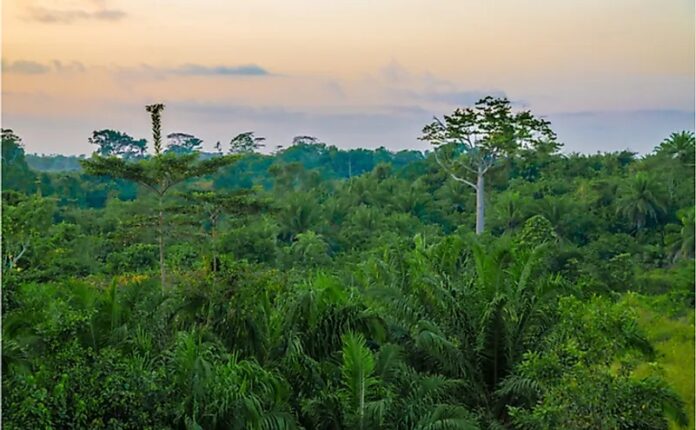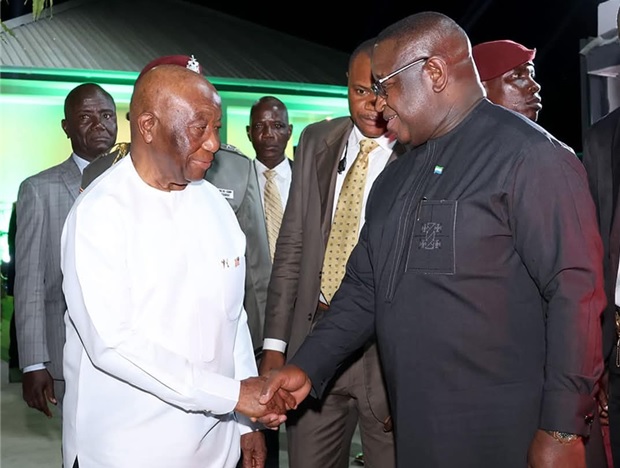Liberia is endowed with an abundance of natural resources – gold, diamonds, wood and rubber – each with the potential to contribute significantly to the country’s economy. Utilization of these resources can facilitate economic growth, create jobs and improve life standards for the local population. However, this promise is strongly contrasts with the widespread challenges of environmental degradation and social inequality that harmed the benefits of Liberia’s riches. Thus, are it to ask: are the natural resources of Liberia a blessing or a curse?
The economic potential of Liberia’s natural resources cannot be exaggerated. Agriculture and forestry comprise a significant portion of the country’s GDP, employing a large segment of the population and contributing to their export revenues. Rubber, for example, has been a cornerstone of Liberia’s economy, with the country being one of the largest producers in the world. Similarly, rich gold and diamond mineral deposits offer significant opportunities for investing and revenue generation. In the right hands, these resources could reinforce Liberia’s infrastructure, finance public services and create a more prosperous society.
However, although the economy has the potential to prosper, the challenges that Liberia faces by taking advantage of these features is deep. Much of the wealth generated by the extraction of resources historically flowed to foreign companies and a small elite, leaving a vast segment of the population in poverty. According to recent reports, the wealth generated from natural resources does not translate into better living conditions for many Liberians. Income disparity and access to resources have fueled an insidious cycle of social inequality, where the rich are richer at the expense of the poor. This inequality is exacerbated by corruption and poor governance, where revenues for good -to -be public are poorly administered or diverted.
Another pressing concern is environmental degradation due to exploration and poor management of natural resources. The appetite unchecked by wood and agriculture led to significant deforestation in Liberia. Precious ecosystems were decimated, the destroyed wildlife habitats and biodiversity decreased. This degradation not only threatens the environment, but also impairs the means of subsistence of those that depend on land for agriculture, foraging and fishing. Climate change, exacerbated by deforestation, have additional risks, threatening food safety and the overall health of communities.
Composing these concerns is the historical context of exploitation of resources in Liberia. The country’s past is punctuated by civil wars supplied in part by the competition for access to diamond and gold mines. These conflicts were disastrous, resulting in the loss of thousands of lives and the destruction of infrastructure. The legacy of this violence continues to haunt Liberia, where many citizens are left fighting with the scars of war and the social fractures that emerged from years of exploitation. The natural resources that should serve as the basis for reconstruction and unity have promoted division and distrust.
Despite these frightening challenges, the hope that Liberia’s natural resources will be used in a way that supports economic development and social equity. Sustainable practices and ethical governance can change this narrative. By implementing policies that promote transparency and responsibility for resource management, the government can ensure that revenues will benefit all Liberians, not just a few privileged. The equitable distribution of the wealth generated from natural resources can pave the way for comprehensive social programs, medical assistance, education and infrastructure investments that benefit the neediest.
In addition, Liberia has a growing opportunity to adopt sustainable development. By recognizing the importance of environmental stewardship, the country can prioritize sustainable practices in agriculture and forestry, balancing economic growth with environmental protection. The promotion of eco -tourism rooted in the natural beauty of Liberia can also present new avenues for economic involvement without decreasing the environment. A commitment to renewable energy sources can help free Liberia from fossil fuels dependence and mitigate the impacts of climate change.
Finally, the question of whether the natural resources of Liberia are a blessing or a curse is in the hands of its leadership and the inclusive policies they implement. If managed responsibly, focusing on social equity and environmental sustainability, these resources could well act as a catalyst for positive change and growth. However, if the status quo persists – with the powerful who continue to benefit at the expense of the devoid of privileges and the environment – these rich resources can really become a curse, perpetuating cycles of poverty, inequality, and environmental ruin.
In conclusion, Liberia is in a crossroads about its natural resources. The path to prosperity is carried with opportunities and obstacles. The imperative of course: transit from an exploiting paradigm to one that promotes social equity and environmental integrity. Only through the collective commitment – by citizens, policies and international partners – can expect to transform their rich natural resources from a source of division into a base for lasting unity and prosperity. The fate of these resources will end up shaping the future of this nation – a future that, if approached with wisdom and prediction, maintains the promise of being a true blessing and not an inevitable curse.







